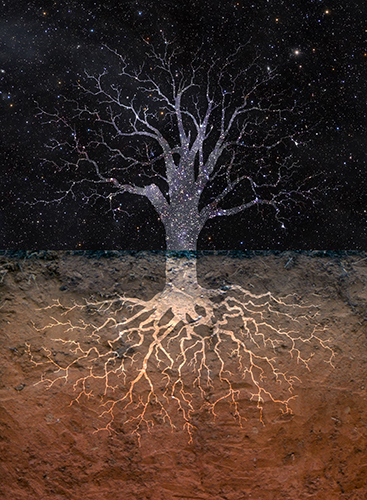Amy at Texas Faith: Percent of Nones rises as Christian numbers decline
Texas Faith: Are there cracks in America’s Christian foundation?
Question by Joel Thornton
The latest Pew study on religion wasn’t great news for America’s Christian churches. In the last seven years, the percentage of adults identifying themselves as Christians has dropped from 78.4 percent to 70.6 percent… But the group making the biggest  splash is “Nones” – atheists, agnostics and others who profess no religious affiliation… Is Christianity becoming less important to Americans?
splash is “Nones” – atheists, agnostics and others who profess no religious affiliation… Is Christianity becoming less important to Americans?
Read the Panel
AMY MARTIN, writer/editor Moonlady Media
When a religion claims to have an exclusive hold on truth, extolling its followers and dismissing the rest, Nones walk away. The size of the universe is unfathomable, the scope of eternity remains beyond our comprehension. How could one religion claim to have the final word on everything, especially when so many do?
Nevertheless, the Nones and I belong to a church, the Church of The I Don’t Know. We cherish our doubts and strive to have comfort with ambiguity. We may be in control of an eternal destiny; we may not. We may experience again those we loved and lost on Earth; we may not. We live our lives and make bonds with others knowing only that we don’t know. And we do it anyway.
For 20 years, I had the honor of leading a loose group of Nones and allies in North Texas. A thousand gathered annually on Winter Solstice. Through a variety of performing arts and ritual we celebrated our highest common denominators. In all those years the event had one constant: We all experienced the darkness, the unknown, for a symbolic three minutes and emerged into light again. Together.
We explored the metaphor of the tree, how the diversity of the leaves of light and the roots of dark came together in balance and strength, in the unity, the community, of the trunk. It became our symbol. We pondered the Earth’s water, how glaciers,  creeks and rivers all run to the accepting sea, only to evaporate, coalesce and descend as rain once again in a fluid life-giving web. We dipped deeply into the symbolism of atomic structure and laws of thermodynamics.
creeks and rivers all run to the accepting sea, only to evaporate, coalesce and descend as rain once again in a fluid life-giving web. We dipped deeply into the symbolism of atomic structure and laws of thermodynamics.
These things that spiritually inspire Nones derive not from religious leaders, sacred books or cultural traditions. They are just there, without motive. They can be trusted. There is no intermediary with an agenda. They are often felt rather than thought, in an experiential wordless way. Nones seem like a return to Taoism, the first recorded religion whose metaphors and aphorisms are drawn from the Earth.
I give thanks for those times when Jesus speaks personally to Christians and makes the divine a more heartfelt and human experience, when Jews are led by their personal connection to God to be compassionate, when the oneness of Allah brings transcendence to followers of Islam. These and other religions will always be with us for those reasons. The rise of the Nones signals a nascent faith that will ever be discovering itself — not based on written beliefs, but rather a way of transcending life through experience and metaphor. The challenge now for Nones is to create structures so they can take part in the care of the world, especially the poor, as churches do.
Our Solstice celebrations had to stop after two decades, but we continue to attend church when a concert moves us deeply, or a speaker takes us places in our minds and broadens how we perceive. When we walk a park path in contemplation, sit on a bench and marvel at how socially alike birds and humans are. Or laugh at a shared folly that helps us understand how much hubris we carry and set a little of that baggage down.
It may seem like an odd amalgam of mundane activities rather than a faith, but isn’t that where spirituality lives and breathes each day? These actions make us better human beings, caring more for each other and connect us to something greater. Seems like God to us. You become what you resist, you manifest what you attract. So be who you are. Let other people be who they are. Face the unknown together, eyes open, no fear.
Solstice tree art by Scooter Smith.
Complete question:
The latest Pew study on religion wasn’t great news for America’s Christian churches. In the last seven years, the percentage of adults identifying themselves as Christians has dropped from 78.4 percent to 70.6 percent. That might not sound huge, but if  it continues falling at that pace, Christians will make up a minority of Americans in a few decades.
it continues falling at that pace, Christians will make up a minority of Americans in a few decades.
On the other hand, faiths such as Judaism, Islam and Hinduism are showing solid growth in our country. But the group making the biggest splash is “Nones” – atheists, agnostics and others who profess no religious affiliation. Many of them are millennials, and their numbers are growing.
Is Christianity becoming less important to Americans?
Are churches not meeting people’s needs? Do people think faith in a higher being is irrelevant in today’s wired society? Is there a feeling that you have to check your brain at the door when you listen to a sermon at church or go to a Bible study?
What do Christian churches have to do lure people back into the pews? And what are Islam, Judaism and Hinduism doing to raise their numbers?